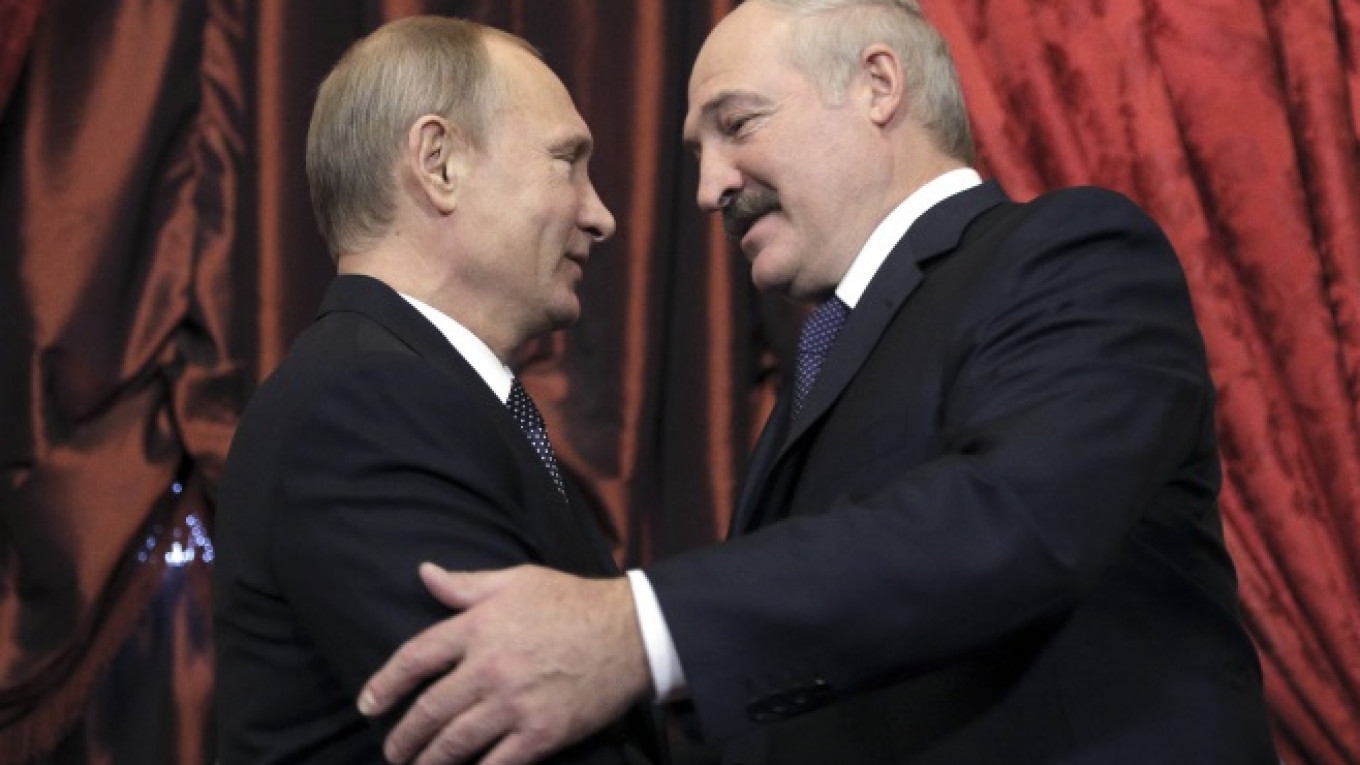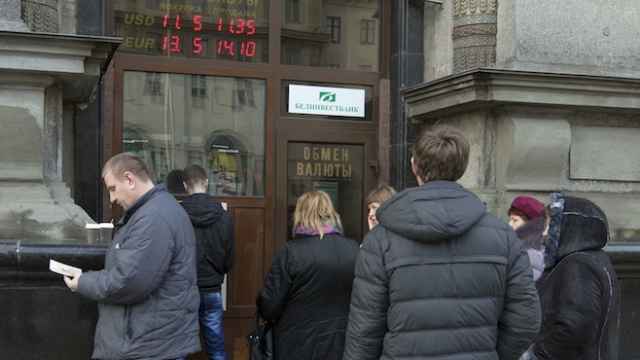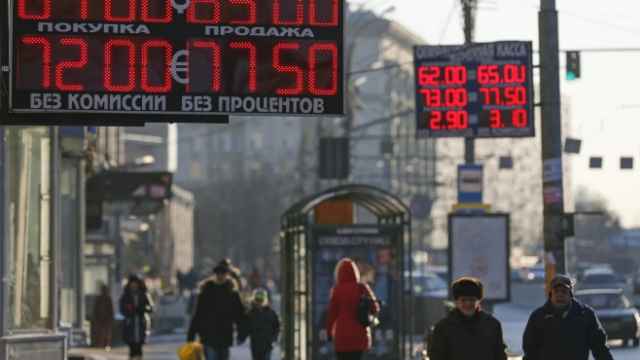MINSK — Belarus took further emergency steps on Thursday to defend itself from economic turmoil in Russia, devaluing its currency by around 7 percent for the second time this week, raising its main refinancing rate and imposing a new export tax on potash.
Former Soviet countries are feeling the pain as Russia, often the main trading partner, suffers from Western sanctions over Ukraine and a sliding oil price, which sent the Russian ruble down by about 40 percent against the dollar last year.
Belarus, with a population of 9.4 million, has had to take swift action to protect its command economy that is closely tied to that of its giant neighbor, which accounts for half of Belarussian exports and provides Minsk with substantial subsidies.
Belarus's Central Bank, which cut the Belarussian ruble's official rate by about 7 percent on Monday, said it was further clipping the rate to 13,760 rubles per dollar starting on Jan. 9, from 12,740.
The bank, which had already devalued the ruble by around 9 percent against the dollar in the course of December, said on Thursday it would only step in to protect foreign exchange rates using its gold reserves at times of peak volatility.
It also announced it would raise its key refinancing rate to 25 percent from 20 percent from Jan. 9, while the government announced a new export duty for potash, a major export commodity, dropping plans to extend a zero-tax rating into 2015, in a move to boost state revenue.
Last month, Belarussian President Alexander Lukashenko sacked the prime minister and other senior ministers after warning them there would be dismissals if they missed his economic objectives. At that time he said Belarus would not devalue its currency over Russian ruble weakness.
The Central Bank has also imposed a 30 percent tax on buying foreign currency because of increased demand, although it lowered this to 10 percent for companies earlier this week and scrapped the duty entirely for individuals on Thursday.
A Message from The Moscow Times:
Dear readers,
We are facing unprecedented challenges. Russia's Prosecutor General's Office has designated The Moscow Times as an "undesirable" organization, criminalizing our work and putting our staff at risk of prosecution. This follows our earlier unjust labeling as a "foreign agent."
These actions are direct attempts to silence independent journalism in Russia. The authorities claim our work "discredits the decisions of the Russian leadership." We see things differently: we strive to provide accurate, unbiased reporting on Russia.
We, the journalists of The Moscow Times, refuse to be silenced. But to continue our work, we need your help.
Your support, no matter how small, makes a world of difference. If you can, please support us monthly starting from just $2. It's quick to set up, and every contribution makes a significant impact.
By supporting The Moscow Times, you're defending open, independent journalism in the face of repression. Thank you for standing with us.
Remind me later.






